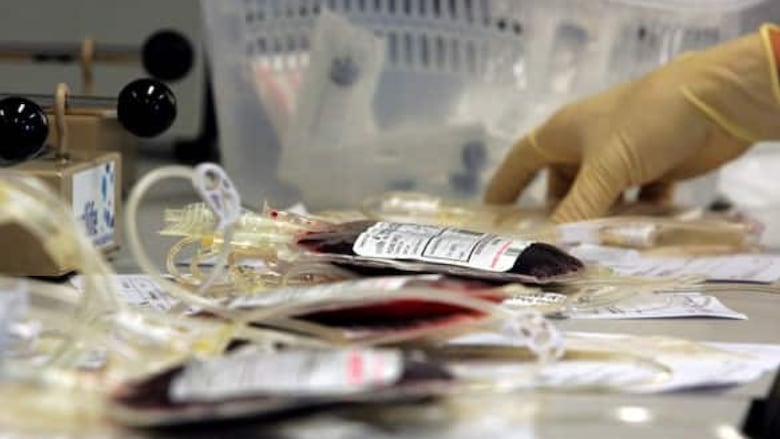Health Canada issues warning on cord blood stored in Edmonton
Regulator warns the blood 'may pose serious health risks' including transmission of infectious diseases

Health Canada says there are concerns surrounding umbilical cord blood stored at the Canadian Cord Blood bioRepository in Edmonton that "may pose serious health risks."
The issues could lead to the possibility of contamination and transmission of infectious diseases and could harm the products, the regulator said on Wednesday.
"These concerns include processing, testing, and storing cord blood in an environment that was unclean or cleaned with expired disinfectants and having inadequate measures in place to monitor temperature, humidity, and contamination in areas where cord blood is processed, tested, and stored."
What's more, Health Canada said online advertising suggests the cord blood can be used by people other than the person the blood came from. The facility in question is only permitted to store cord blood for use by the same individual.
- Are you affected by developments at the Canadian Cord Blood bioRepository? We want to hear about your experience. Send an email to webedmonton@cbc.ca.
Blood collected from a newborn's placenta and umbilical cord is rich in certain stem cells that can be used to treat some health conditions, such as leukemia.
The inspection also identified issues including:
- A lack of qualified personnel.
- Use of uncalibrated equipment.
- Not following established processes.
- Lack of proper record-keeping.
The company has been asked to provide a corrective action plan and to notify customers about the safety concerns.
Health Canada advises anyone who wants to use their stored cord blood to have it tested by a qualified third party for infectious disease agents and cell viability at a minimum.
'Quite concerning'
Heidi Elmoazzen was involved in building Canada's first national public cord blood bank, which opened in Edmonton almost 10 years ago. She has a PhD in Medical Sciences from the University of Alberta with a concentration in cryobiology and is is an expert in cord blood banking,
"It's obviously quite concerning, because whenever you run or operate a cord blood bank, there's a lot of very strict guidelines and quality and safety measures that are taken in place," said Elmoazzen in an interview with CBC Edmonton program Radio Active.
"It needs to be collected, process tested, transported, stored, all within a certain within certain parameters. So if any one of those things aren't documented or done properly, it could actually impact the quality and efficacy of the unit."
LISTEN | Cord blood banking experts says lack of enforced regulation is concerning
CBC News requested comment from the Canadian Cord Blood bioRepository.
Executive and medical director John Akabutu declined to comment.
With files from Mrinali Anchan